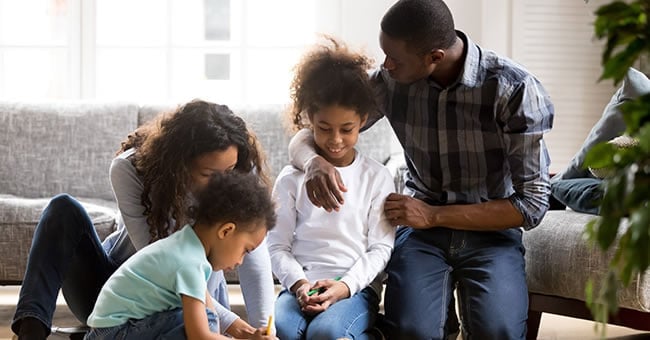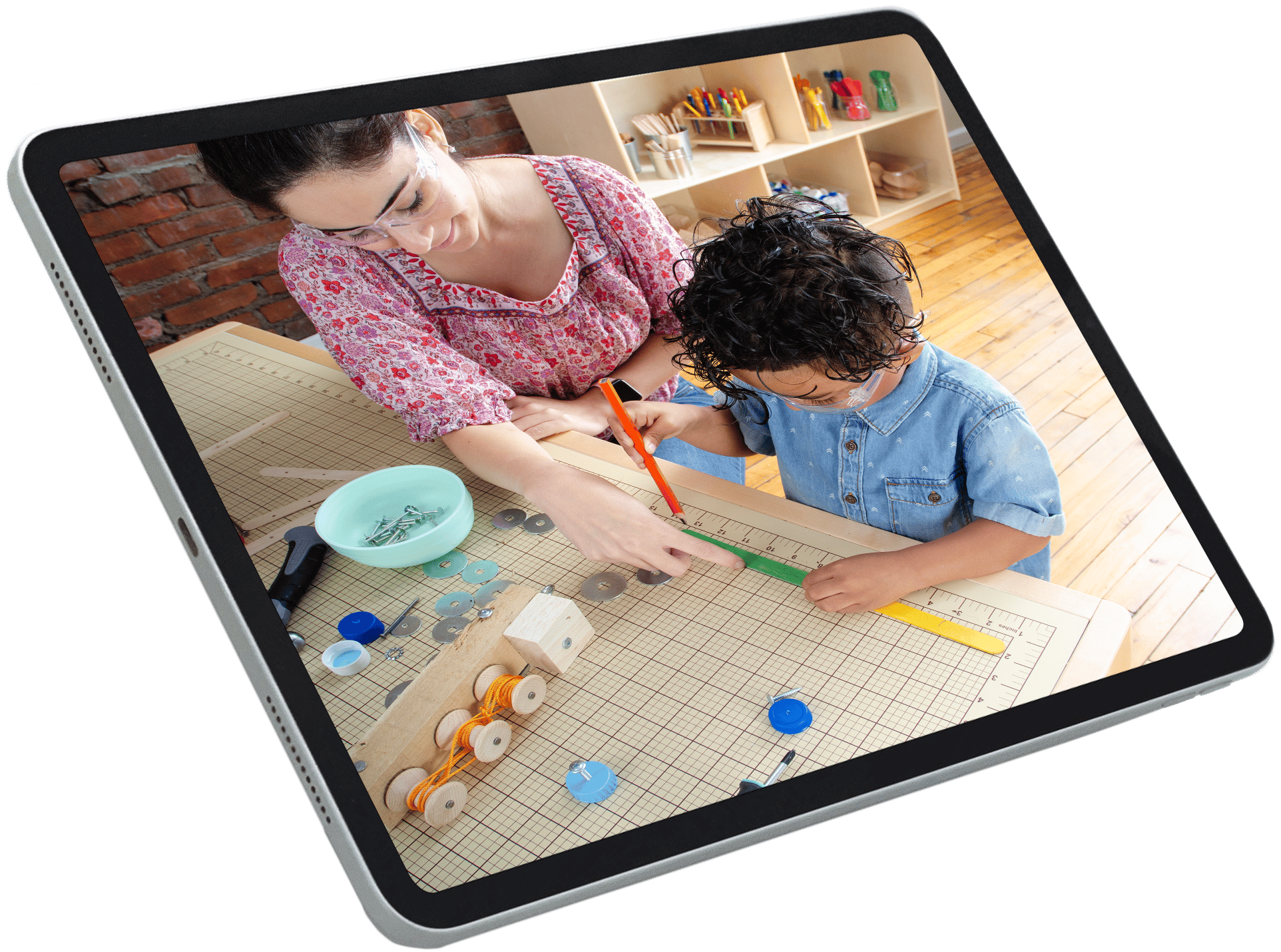
In this blog series, Susan Damico, Director at the Devereux Center for Resilient Children, discusses the mental health effects of the pandemic on children, educators, and families. In this article, Damico provides tips for overall well–being advice for families to navigate this crisis.
Are you feeling more stressed and anxious than you used to? Do you feel confused and even disoriented some days? Me too—and guess what? So do many other parents and families! It doesn't matter whether your children are babies, toddlers, preschoolers or school–age. The COVID–19 crisis has taken a toll on the mental health of every single family in the country. This crisis is a real threat and our bodies are responding in ways that are to be expected. While it may be normal for us to feel more stressed and anxious, we need to slow down and really understand the toll that our responses are having on our bodies—both mentally and physically. Our children are watching and learning from our behaviors and our action. By taking the time to pause and reflect on our emotions and feelings, we can focus and take action, finding healthy solutions that promote our overall health and happiness, and the overall well–being of the children in our lives.
The good news is that each and every one of us has what we need to navigate this crisis. The better news is that a few ordinary strategies can have extraordinary, positive results for our mental health. Here are three tips to get you started in the right direction.
- Reach out to a friend: Healthy relationships are essential for our mental health. During a crisis that calls for physical distancing, we need to stay connected to those friends who make us laugh, who understand our struggles, who celebrate in our successes and who make us feel connected. Before this day is over, write a letter, shoot out a text, or pick up the phone. Whatever means of communication you choose, reach out to a friend and focus on the power of connections.
- Gratitude on cue: Gratitude helps us take notice of all the things that happen each day that are special and rewarding—not just big things, but the littlest things too. One way to practice growing an attitude of gratitude is to find something that you do every day as part of your daily routine—like brushing your teeth or waiting for the coffee to brew—and using that time to reflect on what you are grateful for during that moment. It may be waking from a good night's sleep, seeing the green trees and birds outside the window, a smiling child, or the fact that the house is still quiet. Reflect on the smallest of things for which you are grateful to cultivate a more grateful spirit each and every day.
- Positive focus: There are a lot of things out of our control right now, but what is in our control is our attitude and thoughts. If we choose to focus on what is good and what we can control, our overall mental health will improve. On a good day, you may find that you make this choice in the morning and your day gets started on a positive note. Often, however, you may find that you need to keep making the choice to focus on the positive throughout the day, over and over again. Don't worry if you find that you are constantly needing to remind yourself to stay focused on the positive. Just like everything else in life, the more you practice, the better and stronger you will become.
About the Author
Susan Damico is a former Legislative Assistant and current Director of the Devereux Center for Resilient Children where she manages and coordinates all elements of the center. She graduated from Bucknell University and received her Master's degree in Social Service Administration from the University of Chicago.
Explore This Series
Mental Health Effects of COVID-19 on Children
Mental Health Effects of COVID-19 on Educators
